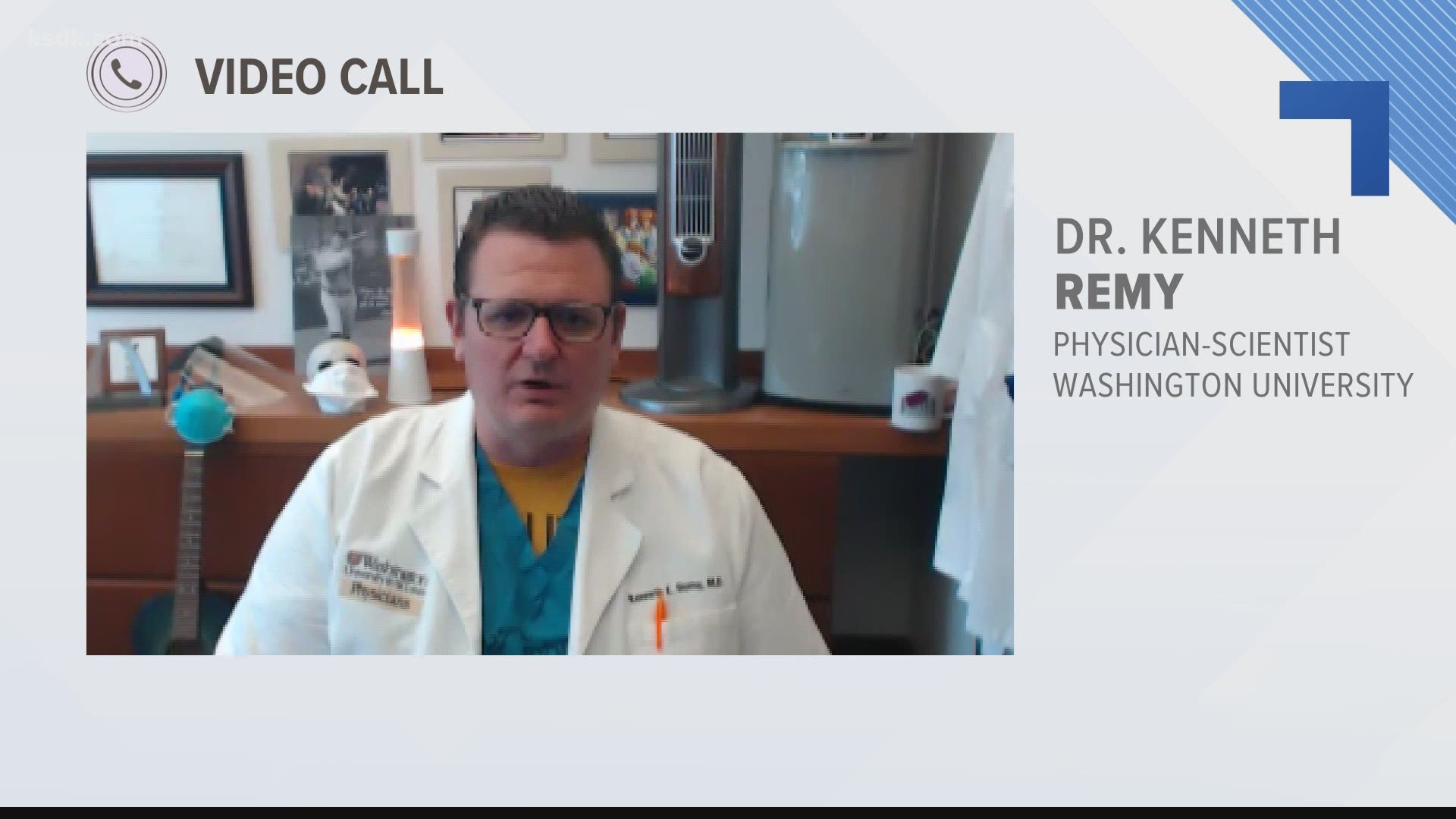ST. LOUIS — Most of the research on COVID-19 has focused on the immune system’s role in patients who become seriously ill.
One theory suggests the immune system works so hard fighting the virus that it could result in fatal organ damage, especially in the lungs.
New findings from researchers at Washington University in St. Louis point to another theory that suggests patients become ill because their immune systems can't do enough to protect them from the virus.
Researchers suggested boosting the immune system could be a potential "treatment strategy" for the virus.
“People around the world have been treating patients seriously ill with COVID-19 using drugs that do very different things,” said Richard S. Hotchkiss, professor of anesthesiology, of medicine and of surgery. “Some drugs tamp down the immune response, while others enhance it. Everybody seems to be throwing the kitchen sink at the illness. It may be true that some people die from a hyperinflammatory response, but it appears more likely to us that if you block the immune system too much, you’re not going to be able to control the virus.”
WashU researchers also have been investigating a similar approach with sepsis, according to a press release.
Hotchkiss used autopsy studies to show large amounts of coronavirus present in the organs of people who died from the virus, suggesting their immune systems were not working well enough to fight it.
“But when we actually looked closely at these patients, we found that their tires, so to speak, were underinflated or immune-suppressed,” said Kenneth Remy, assistant professor of pediatrics, of medicine and of anesthesiology at WashU. “To go and poke holes in them with anti-inflammatory drugs because you think they are hyperinflated or hyperinflamed will only make the suppression and the disease worse.”
Researchers gathered blood samples from 20 COVID-19 patients at Barnes-Jewish Hospital and Missouri Baptist Medical Center in St. Louis and tested the activity of immune cells in the blood.
They compared the blood to 26 hospitalized sepsis patients and 18 others who were very sick but didn’t have sepsis or COVID-19.
Researchers found that COVID-19 patients had far fewer circulating immune cells than what is typical and the immune cells that were present didn’t secrete normal levels of cytokines. Cytokines are molecules many have said are a cause of organ damage and death in COVID-19 patients.
Studies focused on boosting immunity are just getting underway in Europe and similar trials are starting in the U.S., including at WashU, according to the release.
Hotchkiss said finding ways to boost the immune response should not only help COVID-19 patients but also will be useful when the next pandemic hits.
"We should have been geared up and more ready when this pathogen appeared,” he said. “But what Ken [Remy] and I and our colleagues are working on now is finding ways to boost the immune system that may help people during future pandemics. We think if we can make our immune systems stronger, we’ll be better able to fight off this coronavirus, as well as other viral and bacterial pathogens that may be unleashed in the future."

